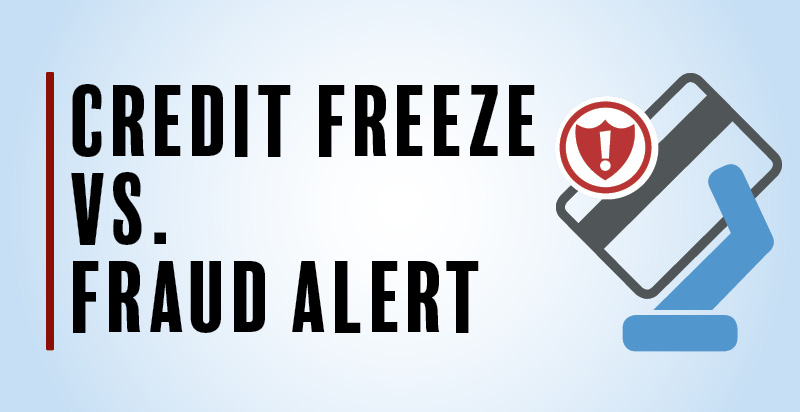
According to the Motley Fool, 1,135,291 cases of identity theft were reported in 2024, roughly 98,000 more than 2023. Credit card fraud was the most common type of identity theft reported.
It is important to know what steps you can take to protect your credit, your identity and your finances.
Two common ways to safeguard your credit information are credit freezes and fraud alerts. Both protect your credit reports but in different ways.
Credit Freeze
A federal law called the Economic Growth, Regulatory Relief, and Consumer Protection Act that went into effect on September 21, 2018, mandates that all Americans can freeze their credit reports for free.
A credit freeze restricts access to your credit reports. When your credit reports are frozen creditors cannot access your reports, this prevents new lines of credit from being opened in your name. To allow lenders and creditors access to your reports you can lift the freeze temporarily. You can freeze your credit with all three major credit bureaus, Equifax, Experian, and TransUnion online, by mail or by phone. Freezing your credit is one of the best ways to prevent identity theft.
You are entitled to a free credit report from all three agencies. Go to https://www.annualcreditreport.com/index.action to request your copies. Check them regularly for errors.
Fraud Alert
A fraud alert does not block access to your credit reports like a credit freeze does, instead it notifies potential lenders to take additional verification steps to verify the applicant’s identity before issuing lines of credit, which may involve the creditor contacting the applicant by phone to verify their identity.
There are three types of fraud alerts. An initial fraud alert, also referred to as temporary fraud alerts because they expire after one year. Everyone has the right to add these to their credit reports, when in place a fraud alert asks creditors to take extra precautions to verify the identity of the person making a request for credit. An extended fraud alert is available if you have been a victim of credit fraud or identity theft. You may need to provide documentation that you have been the victim of identity theft when requesting an extended fraud alert. An extended fraud alert will last seven years. The extended fraud alert requires creditors to contact you before issuing credit in your name. An active-duty alert is available only to active-duty service members, they expire after a year and ask creditors to have a reasonable belief that they know the identity of the person making a request.
Credit Freeze or Fraud Alert
Most experts recommend everyone freeze their credit. After you take the initial steps to freeze your credit it remains frozen until you initiate a temporary or permanent unfreeze. It takes just a few minutes with each bureau to place the freeze and adds an additional layer of security to your credit and finances.
Fraud alerts don’t offer the same level of protection as a credit freeze but if you suspect your identity may be in jeopardy a fraud alert can act as a warning that a fraudster is trying to perform malicious activities in your name.
Setting up one or both takes just a little bit of time but can add to your peace of mind knowing that you have taken steps to protect your finances, identity and credit profile.
